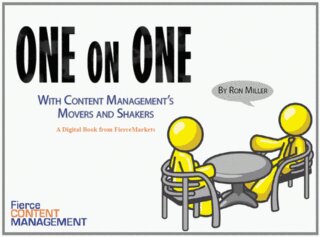 If you’re not monitoring online social you could end up embarrassed.
If you’re not monitoring online social you could end up embarrassed.
There were a couple of high profile faux pas by companies last week, that ended up going viral on social media, and proved the importance of social media monitoring and reacting quickly to negative news.
The first involved Virgin Media, which was inadvertently billing a dead person about a cable bill after the man’s direct debit payment was denied. Virgin Mobile appeared to be insensitive when it added a £10 late fee to the bill.
Meanwhile, as the BBC reported, the deceased man’s son-in-law posted a picture of the bill on Facebook and it quickly went viral making Virgin Media look very bad, indeed.
To the company’s credit upon getting wind of the incident, it quickly issued a public apology, but the brand likely took a hit because of this.
The other company was Hyundai, which ran a commercial in England of a man sitting in his garage trying to commit suicide, only to find his clean burning car made his attempt futile. Black humor to be sure, but as Hyundai quickly found out not everyone was amused. As Mashable reported, it didn’t go over well with Holly Brockwell, who wrote a blistering critique of the ad on her Copybot blog. Brockwell’s dad you see, committed suicide in the very same fashion depicted in the ad.
As the Mashable reporter wrote, “…by Thursday the Hyundai ad had certainly garnered plenty of attention, but not at all the kind of reaction the Korean car company had hoped for.”
The company quickly began backtracking trying to separate itself from the ad agency that had created the ad, but by then it was too late. As with Virgin Media, the brand took a huge hit.
Both of these incidents (and countless others like them) illustrate the importance of online social network monitoring. Midsize companies, which have carefully built their brand reputations can see it unravel quickly when stories like these begin to spread virally on social networks.
In fact, an IBM study conducted by The Economist Business Unit (pdf download; registration required) in June, 2012 of 427 senior executives across a variety of industries around the world, found that executives were extremely concerned about controlling their reputations online. As the paper reported, “The unfortunate reality, however, is that corporate reputations are increasingly difficult to manage in the digital era, and can be easily sullied by any number of factors—among them IT failures.” But as the two incidents above indicate, it can be something entirely outside the realm of direct company operations, as well.
That’s why companies need to be monitoring their online reputations and reacting quickly advises public relations/media relations consultant, Jeff Rutherford, who has 16 years experience working with companies big and small. “I advocate a fast, human response versus. a slow, corporate response. Because, if an apology is heartfelt and quick, you can work to minimize an incident spiraling out of control. But, the emphasis should be on heartfelt,” he told me.
But Rutherford would have taken it one step further, using the incident to do some good. “In Hyundai’s case, I would have recommended a multi-million dollar contribution to a UK suicide prevention organization. And, I’d even suggest making public an investigation into the decision-making process that allowed an ad that mocked suicide to even be considered, much less produced. In Virgin Media’s case, a faster, public response would have been nice, and how about giving the man’s son-in-law free Internet access for life?. That’s a rounding error in Virgin’s expenses, and it would go a long way towards a genuine apology.” Rutherford explained.
The fact is even if you’re not listening, the conversations are happening, and whether it’s a security breach, downtime, a billing glitch or and insensitive ad; you need to be listening to what your customers are saying — because whether you listen or not, the fact is they are talking about you in online forums.
You can be proactive about it, or you can stick your head in the sand, but it doesn’t change the fact it’s happening, and the faster you react to institute damage control, the better off you’re going to be.
And when you screw up, fess up and fix it as best you can, as quickly as you can.
Photo Credit: Seth Lemmons on Flickr. Used under CC 2.0 Share Alike/Attribution license.
This post was written as part of the IBM for Midsize Business program, which provides midsize businesses with the tools, expertise and solutions they need to become engines of a smarter planet. I’ve been compensated to contribute to this program, but the opinions expressed in this post are my own and don’t necessarily represent IBM’s positions, strategies or opinions.










